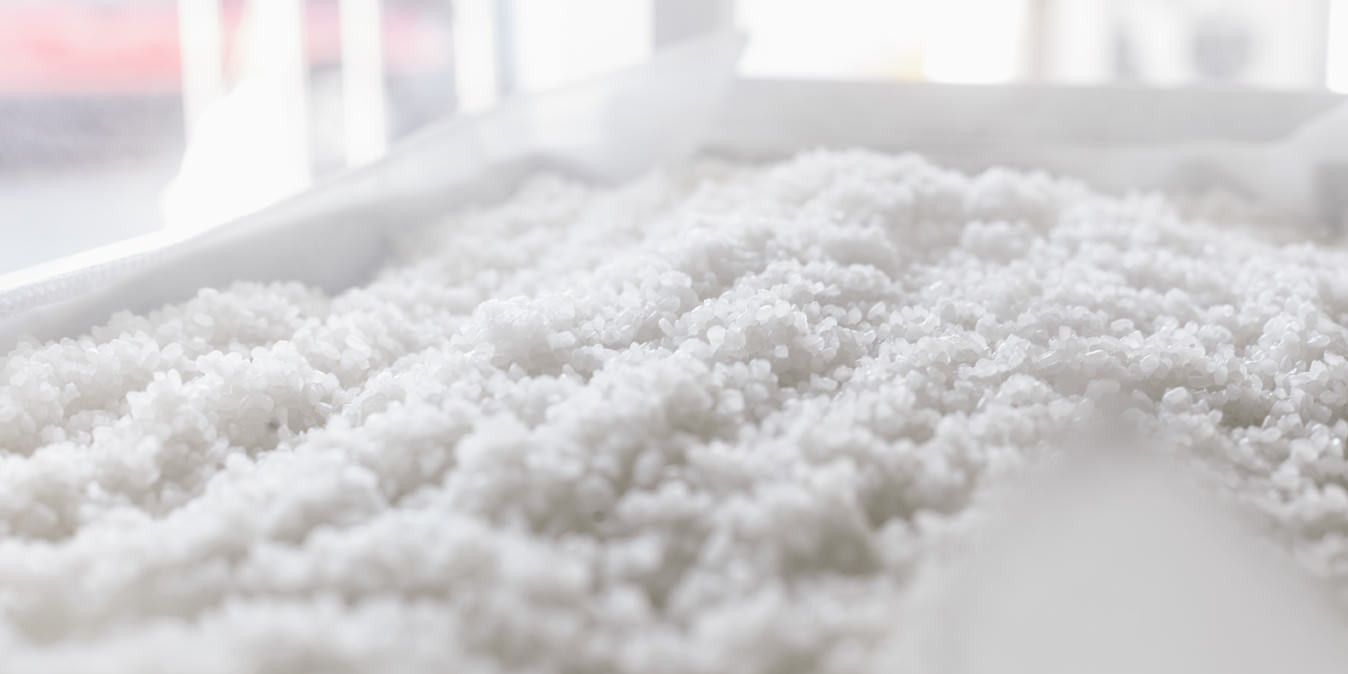One rarely gets to hang out with a toji. ‘Hang out’ as in sit there and drink sake slowly over a few hours with someone whose life is so tied to sake that he or she has no idea when technical references to their everyday brewing problems go right over the heads of we mortals.
“It was a cool summer, so the rice was soft and the meter just jumped off the charts this year!” The what did what? Huh?
I have spent enough time wading through sake-brewing tech talk in Japanese to realize that he meant that the rice dissolved much more quickly than anticipated, and that made the nihonshu-do jump. In other words, he got much more sugar than he wanted or expected, or much earlier in the process than was optimal.
Those were the words of Shinji Hinoshita as we drank together a few years ago. He is a relatively young toji brewing Kinkan Kuromatsu in Yamaguchi and is skilled way beyond his years.
But his set of skills–and those of any good toji–go far beyond just knowing when your meter is going to blow, and how to recover from that. And this is what impresses me and inspires me so much about toji. Whether they are from one of the traditional guilds, the owner or a family member, or just a brewing savant, there is much that they do that contributes to their aura and that of their sake.
As the evening wore on and the sake kicked in, he opened up about what was bringing him down. “Lots of people think that a toji’s job is just about technical prowess, but there is so much more than that involved.” He continued, “I have to lead a team and the harmony in the brewery will definitely, directly and profoundly impact the quality of the sake.”
This concept is conveyed by the traditional term “Wajôryôshu,” the four characters of which mean harmony, brew, good and sake. That tells it all.
He went on to describe how one of his biggest challenges of the year was not how fast the rice was dissolving, but rather that one member of the team of eight with whom he worked shoulder to shoulder sixteen hours a day, seven days a week for the five-month brewing season had a penchant for bad puns. As in, constantly. As in, nonstop. Ad infinitum. Ad nauseum.
This had become unbearably annoying to the rest of the brewing team, to the point where the quality of the sake could be affected–if not the member’s physical safety. So this vaunted toji had to put on a different hat and pull the guy aside. “Knock it off,” he said, “for the sake of the sake.”
Yet another toji told me of one member of his staff who snored like an animal, keeping the other brewers awake. Or yet another whose brewers were so attached to the way the previous toji did things that he was confronted each time he tried to do things differently. “That’s not the way the old toji did it…” “Yeah, well I am not him, now am I, dammit!” You’d think it would be solely about their ability to brew good sake. Extinguish the thought!
Half of what makes them great is their brewing prowess. Keiken to kan means experience gained over the years and the intuition that is gained from it. But half of what makes them great is their leadership skills–the ability to be a good boss, keep everyone focused and cooperating, and thereby keep a very complicated process flow in balance. The other half, more or less, is their ability to overcome the inevitable crap that happens each year.
What crap might that be?
One never knows. Some major piece of equipment like a rice steamer breaks down, someone in a crucial role gets ill or quits halfway through the season, the rice you ordered doesn’t come in and you have to replace it with inferior stuff, the winter is too warm… “I didn’t have enough money for the cab fare, my tux didn’t come back from the cleaners, there was a terrible flood, an earthquake, locusts…” There is potentially no end. But taking that all in stride, and brewing the same sake year-in and year-out with great consistency, is that vitally important third element.
This, in the opinion of more than one brewery owner, is what makes a great toji. Sure, accolades and prizes are important, too. But that last ability is what keeps a sake brewing business humming along.
“Gold medal, schmold medal,” it was once explained to me. “I much prefer a toji that can give me consistency of product, no matter what happens in the kura during the brewing season. Now that is a great toji!”
Learn more about the unique culture of toji in this month’s feature. That and our other coverage of sake-related topics promise to make this month’s Sake Today yet another interesting read–one that will surely be enhanced by the proximity of some good sake.
John Gauntner






